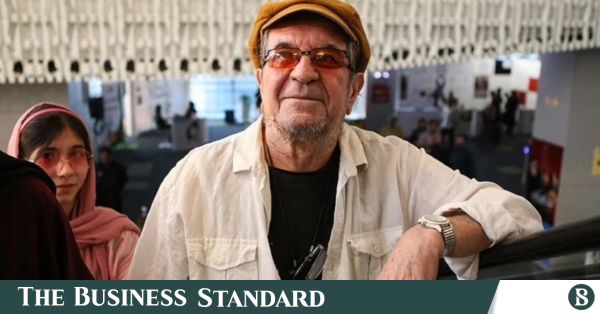One of Iran’s most prominent filmmakers, Dariush Mehrjui, was stabbed to death on Saturday October 14 alongside his wife at their home near Tehran.
A provincial chief judge said Mehrjui and his wife, Vahideh Mohammadifar, “were killed by multiple stab wounds to the neck,” the judiciary’s Mizan Online website reported.
According to Hossein Fazeli-Harikandi, chief judge of Alborz province near Tehran, Mehrjui sent a text message to his daughter, Mona, around 9 p.m. local time (5:30 p.m. GMT), inviting her to dinner at their home. in Karaj, west of Tehran. But when she arrived an hour and a half later, she discovered the bodies of her deceased parents, with fatal wounds to their necks.
Later in the day, police said “no signs of forced entry were visible at the crime scene”, adding that “no damage was caused to the doors” of their home. However, they indicated that “traces were found” at the scene, which they believe to be “linked to the murderer”.
According to the Iranian news agency ISNA, citing the police headquarters, four suspects were identified for their links to the case and two were arrested. On Sunday, the Etemad newspaper published an interview with the filmmaker’s wife claiming that she had been threatened and that their home had been broken into. “The investigation revealed that no complaints had been filed regarding the illegal entry into the Mehrjui family villa and the theft of their belongings,” Fazeli-Harikandi said.
In a statement, Iranian Culture Minister Mohammad-Mehdi Esmaili hailed Mehrjui as “one of the pioneers of Iranian cinema” and “the creator of eternal works.”
Born December 8, 1939 in Tehran, Mehrjui studied philosophy in the United States before returning to Iran where he launched a literary magazine and released his first film in 1967, Diamond 33, a parody of the James Bond series.
The 83-year-old was indelibly associated with the Iranian New Wave of cinema, with his 1969 film The Cow, one of the movement’s first films. He then made a series of highly acclaimed films, including Mr Gullible (1970), The Cycle (1977) before leaving Iran following the Islamic revolution of 1979. Between 1980 and 1985, he lived in France where he worked on the documentary Voyage au pays by Rimbaud (1983). Back in his native country, he triumphed at the box office with The Tenants (1987).
In 1990, he directed Hamoun, a black comedy showing 24 hours on the life of an intellectual tormented by divorce and psychological anxieties in Iran overtaken by the technology companies Sony and Toshiba. Throughout the 1990s, Mehrjui also depicted women’s lives in Sara (1993), Pari (1995), and Leila (1997), a melodrama about a barren woman who encourages her husband to marry a second wife.
In interviews with Iranian media, Mehrjui said he was “greatly influenced” by Swedish filmmaker Ingmar Bergman and Italian Michelangelo Antonioni. “I don’t make directly political films to promote a particular ideology or point of view. But everything is political,” he once said. For Mehrjui, cinema is like “poetry that cannot take sides with anyone” and he remains adamant that “art should not become a tool of propaganda”.
Alongside his film career, he translated works by the French playwright Eugène Ionesco and the German Marxist philosopher Herbert Marcuse into Persian.
